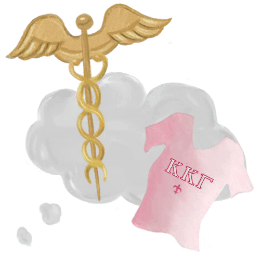Advice from the Best: Round 5 in our College Counselor Series!
Get ready for our next installment in our College Counselor Series. This time, Karen Handler Ryan** gives her guide to building a college list that helps your student find the right school. We know Karen as phenomenally knowledgeable and deeply dedicated to her students’ success, and we are excited to share her expertise with you.
High school students often wonder where to start researching colleges. Many college lists start with institutions that family members have attended, where friends are enrolled, or ones that are close to home. Here are strategies to get you started on discovering which colleges may be right for you.
1. Figure out your priorities.
What MUST a college have for you to be happy there? These factors often include academic programs or majors, size of the school, urban or rural location, and distance from home.
What would you LIKE a college to offer? These factors typically include athletics, Greek life, weather, school spirit, and research opportunities.
2. Talk to your parents about any requirements they may have about the college you attend.
It is important to understand your family’s financial parameters as you begin researching colleges. Even if cost is not a concern, parents may have strong feelings about distance from home or other factors. Communicate your priorities to your family so they understand what is important to you. It is better to discuss these factors at the beginning of the college search.
3. Explore different types of colleges.
As a first step, visit a large state university, a mid-size university and a small liberal arts college. It doesn’t matter if you are actually interested in the specific school because these initial visits are meant to give you a sense of what different types of schools are like.
For these initial schools, pick colleges that are close to home or stop by one of these institutions when you are on a trip. If you are in New York, there are a number of different types of colleges within driving distance. If you can’t do these visits in person, tour one of each type of school remotely.
4. Based on your preferences, make an initial list of colleges to research, then add to it as you figure out what schools you like.
This list can include schools that one of your parents attended or a place where your favorite friend from high school attends, but make sure to include colleges that you want to investigate independently. Aim to have colleges on the list that have the factors that you need, and also have at least some of the factors that you would like to have offered.
Try to have a few schools on this list that are different from the others. If you are focusing mainly on colleges in the Northeast, pick one school in the South or Midwest to research. Similarly, pick one or two schools that are a different size than the others on the list to understand the differences in institutions.
5. Research! Use in person and online resources to learn about different colleges.
In person tours and information sessions are typically a great way to learn about a college. Check the admissions webpage of specific colleges. Some have started offering in person admissions tours.
There are also many online resources available to students. Colleges offer virtual tours and information sessions on their admissions webpages. Some even offer live virtual tours where you can ask questions along the way. In addition, websites like YouVisit offer virtual tours of many colleges. Attend live information sessions as they are another great way to learn about unique aspects of each college. Research academic programs and determine if the school has general education requirements or required courses.
6. Don’t forget to investigate extracurriculars and other aspects of each college.
Talking to students that attend a college is a great way to find out more about extracurricular activities, social life, and dining options. Websites like Induck allow students to research what is happening socially at different colleges. Campusreel has videos made by students showing different aspects of their college experience.
7. Narrow down your list to a manageable number of schools, with a wide range of selectivity.
As you adjust and cull your list, make sure it includes schools that are divided equally into reach, target and likely schools. Generally:
A reach is any school that has a lower than 20% admission rate or if the profile of the average admitted students exceeds your profile of high school grades, test scores and extra curricular activities.
A college is a target if your high school profile is similar to the typical admitted student at that school.
A college is likely if your profile exceeds the profile range for admitted students.
A typical college list has between 8 and 15 schools, but your personal factors may make your list longer or shorter.
8. Listen to the experts.
When putting together your college list, get help where you can, whether that is from your school college counselor or an independent college consultant. Make use of their experience and knowledge about the different institutions. You may find the perfect college for you in an unlikely place. Be open minded and, most of all, have fun with the process. There is more than one “right” school for everyone!
Have questions about building a college list for your child? Give us a call, we know how difficult this process is, and we are here to help!
**Karen Handler Ryan is the founder of Excelsior Admissions Consulting, which specializes in student-focused, customizable college consulting. Karen was born and raised in New York City, and is an alumna of Trinity School in Manhattan. She received her B.A. in Psychology with Honors from Wesleyan University. She also received her J.D. from Columbia University Law School and practiced law at a major international firm. She has completed the Columbia University Teachers College Advising Program. As a member of the Common Sense Media New York Advisory Council and a Graduation Coach at Yonkers Partners in Education, Karen is a staunch advocate for equity in education. Karen uses her strategic knowledge and expertise to take the stress out of the college application process for students and their families.






